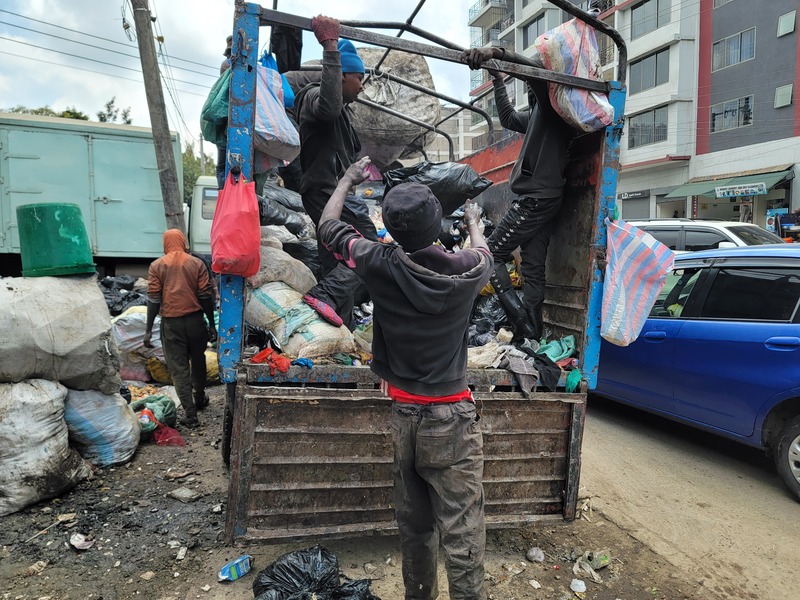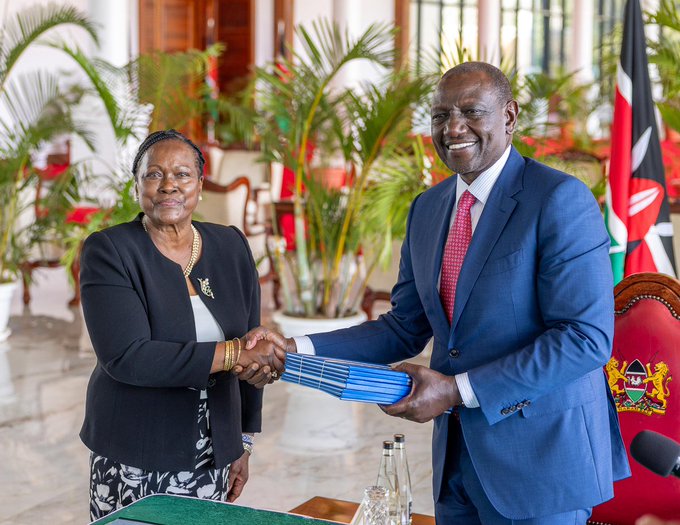Biodegradable garbage bags mandate takes effect as NEMA's 90-day notice expires

The Act requires that segregated waste be placed in properly labelled and colour-coded receptacles, bins, containers, and bags, ensuring clear differentiation and ease of processing.
The transition to using biodegradable garbage bags for organic waste collection officially began yesterday, following the expiration of a 90-day notice issued by the National Environment Management Authority (NEMA). The directive, which aims to enhance the environmentally sound management of organic waste, marks a significant step in Kenya's ongoing efforts to combat plastic pollution.
On April 8, NEMA issued a notice requiring all households, private and public sector institutions, religious organisations, and event organisers to segregate organic waste and place it exclusively in 100% biodegradable garbage bags or bin liners.
More To Read
- Court certifies urgent petition over Sh17 billion waste contract awarded to Ghanaian firm
- New Bill proposes hefty fines, jail terms for careless disposal of electronics
- Truck that overturned in Uasin Gishu was ferrying natural rubber latex to DRC
- Court bans eucalyptus planting near water sources nationwide
- Ecoball: How to make picking up litter fun and turn it into a game for kids
- Kenya seeks World Bank, EU support to remove toxic asbestos roofs
The notice further stipulated that this waste should be collected separately from other types of waste and transported to designated material recovery facilities for further processing.
"From the foregoing, therefore, and to ensure environmentally sound management of the organic waste fraction, the Authority hereby directs that within 90 days from the date of this notice, all organic waste generated by households, private sector and public sector institutions, religious institutions, private and public functions, and events shall strictly be segregated and placed in 100% biodegradable garbage bags or bin liners only," NEMA stated in its notice.
The use of conventional plastic bags and bin liners for organic waste collection has now been officially prohibited. To comply with this directive, all county governments and NEMA-licensed private waste service providers are mandated to supply their clients with biodegradable garbage bags only.
 Youth from Backyard Self Help Group in Eastleigh sorting food waste. (Photo: Ahmed Shafat)
Youth from Backyard Self Help Group in Eastleigh sorting food waste. (Photo: Ahmed Shafat)
This move follows the Kenyan government's 2017 ban on the manufacture, importation, and use of plastic carrier bags and flat bags for commercial and household packaging, as outlined in Gazette Notice Nos. 2334 & 2356. This ban included garbage bags and bin liners within its scope and has since set a precedent for further regulatory measures aimed at reducing plastic waste.
The Sustainable Waste Management Act, 2022, under Section 12, reinforces this initiative by mandating all public and private sector entities to segregate non-hazardous waste into organic and non-organic fractions.
The Act requires that segregated waste be placed in properly labelled and colour-coded receptacles, bins, containers, and bags, ensuring clear differentiation and ease of processing.
Additionally, waste service providers are obligated to collect, handle, and transport segregated waste in accordance with these regulations.
NEMA, along with other relevant authorities, will be monitoring compliance and addressing challenges during the initial implementation phase.
This initiative represents a critical step towards sustainable waste management practices in Kenya, aligning with global efforts to reduce plastic pollution and promote environmental stewardship.
Top Stories Today












































